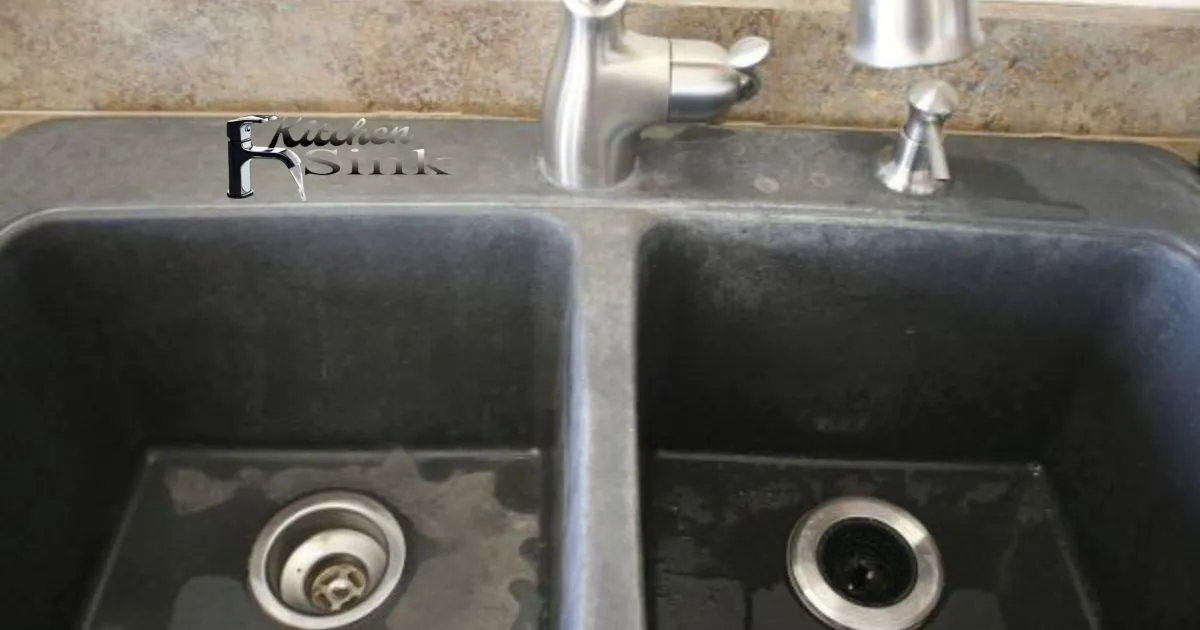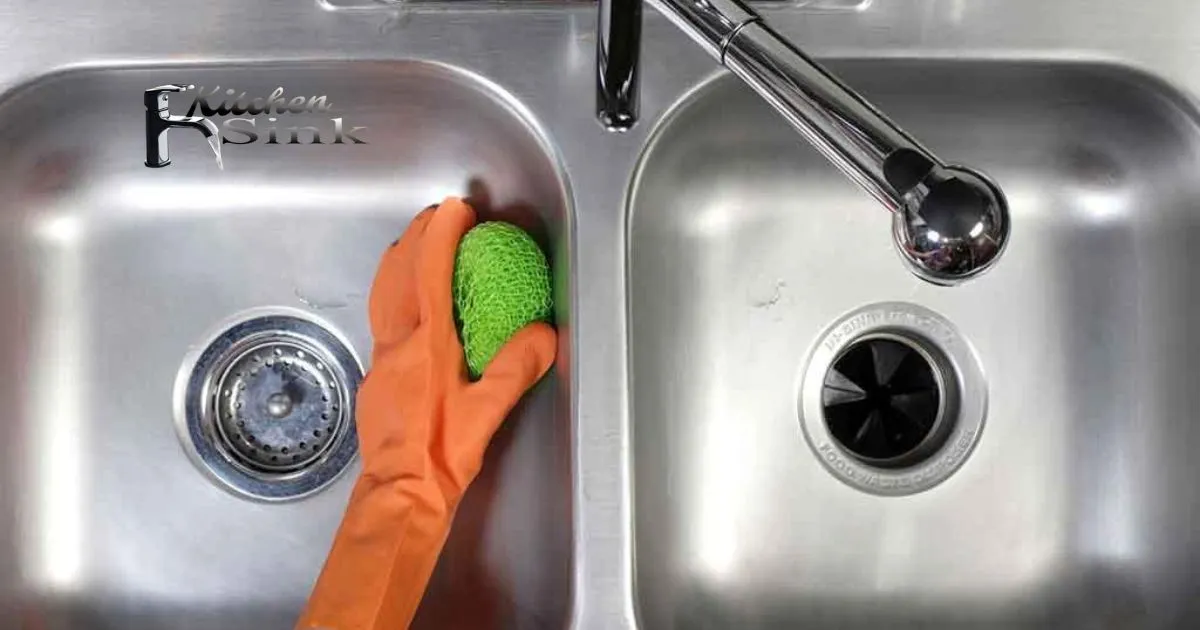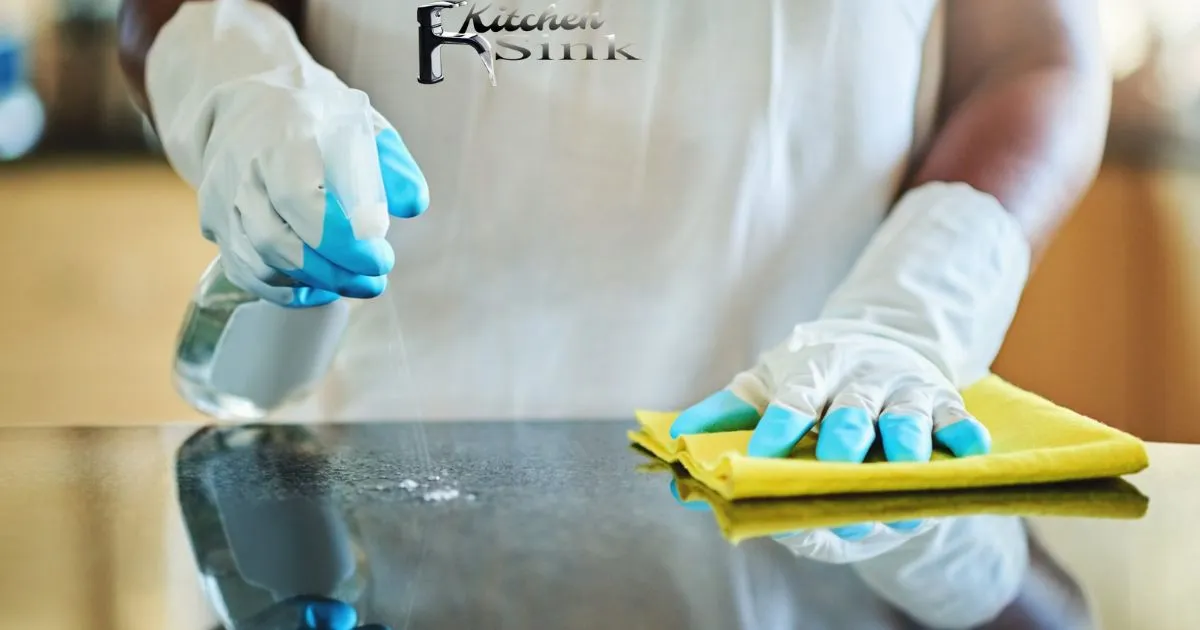To clean a black kitchen sink, you can follow a simple guide to keep it looking its best. Regular maintenance is straightforward, involving washing the surface with clean water and wiping it off. For more stubborn stains, various cleaning techniques and products can be used to maintain the sink’s glistening surface and prevent it from losing its shiny appearance over time.
If you’re wondering “How To Clean Black Kitchen Sink?”, you’ve come to the right place. Cleaning a black kitchen sink is easy with the right approach. By following simple steps and using the appropriate cleaning materials, you can ensure that your black sink remains in top condition and free from stains and buildups.
When it comes to cleaning a black kitchen sink, routine maintenance is key to preserving its appearance. Simple practices such as washing the surface with clean water and wiping it off are sufficient for regular cleaning. Additionally, using specific cleaning products and techniques for stubborn stains and buildups can help maintain the sink’s shiny appearance over time.
How Often Should You Clean Your Kitchen Sink?
You should clean your black kitchen sink at least once a day by wiping it down to remove food debris, grease, etc. A deeper clean every 1-2 weeks using baking soda, vinegar, etc. to scrub away stains and buildup is also recommended.
Black Kitchen Sink Needs Cleaning
Signs that indicate your black kitchen sink needs cleaning include visible stains, cloudy film buildup, grime in hard to reach areas like the drain, foul odors coming from the drain, and overall dullness in the sink’s surface.
Signs of a Dirty Black Kitchen Sink Needing Cleaning
Visible signs of a dirty black kitchen sink in need of cleaning include stains, grime, film buildup, foul odors from the drain, debris caught in the drain, overall dullness in the sink’s surface, and water spots or rings.
Clean a Black Kitchen Sink Daily
Yes, you should clean a black kitchen sink daily by wiping it down to remove any visible messes, stuck-on food debris, grease, etc. This quick daily cleaning helps prevent long-term buildup and keeps the sink looking shiny.
Weekly Cleaning Enough for a Black Kitchen Sink
A weekly cleaning is generally not enough for a black kitchen sink. In addition to a thorough weekly deep cleaning, you should also do a quick daily wipe down after use to prevent grime and stains from building up over time.
What Are the Best Cleaners for a Black Kitchen Sink?
The best cleaners for black kitchen sinks are baking soda, vinegar, and dish soap. Making a paste of baking soda and water and scrubbing with a soft cloth lifts stains. Spraying equal parts vinegar and water dissolves soap scum. Using a few drops of dish soap with warm water also works well. Avoid abrasive cleaners like steel wool pads that could scratch the surface.
Kind of Cleaner Works Best on Black Kitchen Sinks
Natural cleaners using ingredients like baking soda, vinegar, and dish soap work best on black composite or granite kitchen sinks. Baking soda has a gentle abrasiveness that lifts stains without scratching.
If you’re looking to small ants around the kitchen sink, a natural solution is to use vinegar. Vinegar not only dissolves soap scum but also serves as an effective ant deterrent. Create a mixture of vinegar and water, then wipe down the sink and surrounding areas.
Abrasive Cleaners Safe for Black Kitchen Sinks
Abrasive cleaners are not good for black kitchen sinks. They can damage the sink. The sink can get scratched. It can also get stained more easily. Gentle cleaners are better. Use dish soap and soft sponges. Check the manufacturer guidelines for cleaning.
Here is a table summarizing if abrasive cleaners are safe for black kitchen sinks:
| Are Abrasive Cleaners Safe for Black Kitchen Sinks? |
| No, abrasive cleaners are not safe |
| They can scratch the sink |
| They can damage protective finishes |
| Gentler cleaners like dish soap are better |
| Always check manufacturer cleaning guidelines |
Use Bleach to Clean a Black Kitchen Sink
No, bleach and other harsh chemicals like ammonia, dyes, and oven cleaners should never be used on a black kitchen sink. They can damage, corrode, and discolor the natural stone, granite, or composite surface. For disinfecting, use a natural cleaner with vinegar instead. And thoroughly rinse off any cleaning solution with water when done.
Using Baking Soda to Clean a Black Kitchen Sink
Yes, baking soda is highly recommended for cleaning black kitchen sinks. Making a paste with baking soda and water provides gentle abrasiveness that can lift stains and buildup without scratching.
Baking soda also has natural deodorizing and disinfecting properties. After scrubbing with baking soda, rinse thoroughly and dry with a soft cloth. Wipe the sink down weekly with mineral oil to maintain its shine.
How Do You Clean Tough Stains in a Black Kitchen Sink?
To clean tough stains in a black kitchen sink, make a paste of baking soda and water and apply it to the stains. Gently scrub the paste into the stains with a soft, clean cloth using circular motions.
Let the paste sit for 5-10 minutes before rinsing thoroughly with cool water. The baking soda will help break down stubborn stains. For additional cleaning power, you can also spray the stains with an equal parts mixture of distilled white vinegar and water before applying the baking soda paste.
Remove Rust Stains From a Black Kitchen Sink
To remove rust stains from a black kitchen sink, make a paste with lemon juice and baking soda. Apply the paste to the rust stains and allow it to sit for 10-15 minutes before scrubbing with a soft sponge or cloth.
The acidity of the lemon juice helps dissolve the rust while the baking soda acts as a gentle abrasive. Rinse thoroughly after scrubbing. For tougher rust stains, allow the paste to sit overnight before scrubbing and rinsing.
Rid of Hard Water Stains in a Black Kitchen Sink
To get rid of hard water stains in a black kitchen sink, fill the sink with equal parts vinegar and warm water. Allow the solution to sit in the sink for at least one hour before draining and rinsing thoroughly. The acetic acid in vinegar will help dissolve mineral deposits and hard water stains.
For extra scrubbing power, sprinkle some baking soda directly onto stubborn stains and gently scrub with a soft sponge or cloth after letting the vinegar solution sit.
Clean Grease Buildup in a Black Kitchen Sink
To clean grease buildup in a black kitchen sink, spray greasy areas with degreasing dish soap and let it sit for 5 minutes. Using a soft sponge, gently scrub the grease stains. Rinse thoroughly with warm water. For heavier grease buildup, sprinkle baking soda onto the greasy areas after spraying with dish soap.
Let the baking soda sit for 10-15 minutes before scrubbing and rinsing. The baking soda will help further break down the grease.
Removes Limescale From a Black Kitchen Sink
To remove limescale from a black kitchen sink, bring equal parts white vinegar and water to a boil in a pot on the stove. Carefully pour the hot vinegar solution into the limescale-stained sink and let it sit overnight.
In the morning, drain the sink and scrub away limescale with a soft cloth or sponge. Rinse thoroughly. The acidic vinegar solution will dissolve mineral deposits while the heat helps it penetrate deeper. For extra scrubbing power, sprinkle baking soda onto limescale stains after pouring in the vinegar solution.
What Is the Best Way to Clean a Black Kitchen Sink Daily?
The best way to clean a black kitchen sink daily is to wipe it down with a soft cloth, warm water, and a mild dish soap. This helps prevent buildup of grime, soap scum, and hard water stains. It’s also important to thoroughly rinse and dry the sink after each use to prevent water spots. Using abrasive cleaners or scrubs daily could damage the sink over time.
Hand Wash or Machine Wash a Black Kitchen Sink
Hand washing is recommended over machine washing for cleaning a black kitchen sink. The extreme heat and harsh detergents used in a dishwasher could damage the protective finish over time.
Hand washing allows you to use milder cleaners that are safe for the sink. It also gives you more control to spot clean stains and work grime out of crevices.
Steps Should You Follow to Hand Wash a Black Kitchen Sink
To hand wash a black kitchen sink, first remove any debris and drain the standing water. Mix a mild dish soap with warm water and use a soft sponge or cloth to clean the basin and fixtures.
Pay special attention to crevices and the drain area. For tough stains, make a paste with baking soda and scrub gently before rinsing. Always rinse thoroughly with clean water and wipe dry with a soft towel to prevent water spots. Avoid using abrasive pads or cleaners that could scratch the finish.
Disinfect Your Black Kitchen Sink
It’s recommended to disinfect a black kitchen sink at least once per week. This helps kill germs that can spread bacteria and make you sick. Spray or wipe down all surfaces with a disinfectant and let it sit for the product’s recommended contact time before rinsing. Increase disinfecting to 2-3 times per week if you prepare raw meats or your sink gets heavy use.
Use Hot or Cold Water to Clean a Black Kitchen Sink
5 benefits of using cold water to clean a black kitchen sink:
- Cold water is less likely to damage the sink’s finish. Hot water can cause cracking or discoloration over time.
- Cold water conserves energy. You avoid heating extra water which saves on electricity or gas usage.
- Cold water rinses away debris just as effectively. The temperature does not impact cleaning ability.
- Cold water prevents mineral deposits from building up. Hot water causes more lime and calcium to be left behind.
- Cold water extends the life of the sink. Avoiding heat damage keeps a black kitchen sink looking new for longer.
Using cold instead of hot water to clean a black kitchen sink helps prevent damage, saves energy, cleans effectively, minimizes mineral buildup, and increases longevity. The temperature of the water does not affect cleaning performance. Sticking with cold water is best for protecting and maintaining a black kitchen sink.
How Do You Keep a Clean Black Kitchen Sink Looking Good?
To keep a black kitchen sink looking good, it’s important to clean it regularly with mild dish soap, warm water, and a soft sponge or cloth. Avoid abrasive cleaners or scrubbers that could scratch the finish. Rinse thoroughly after washing and wipe dry with a microfiber cloth to prevent water spots. Polishing monthly with a specially formulated sink polish will also help maintain the sink’s shine and protect the finish.
Wax or Seal a Black Kitchen Sink After Cleaning
Applying a sink wax or sealant can help protect a black kitchen sink and make cleaning easier. Use a wax or sealant made specifically for black composite sinks. Apply it after thoroughly cleaning and drying the sink according to package directions. Reapply monthly or as needed. .
Prevents Water Spots on a Clean Black Kitchen Sink
Diligently drying a black kitchen sink after each use is key to preventing water spots. Use a soft microfiber cloth and carefully dry all surfaces of the sink. You can also use a small amount of rubbing alcohol on a cloth to wipe the sink and displace any remaining water.
Prevent Rust Stains in a Black Kitchen Sink
To prevent rust stains, promptly wipe up any standing water or spills which can cause rust if left on a black sink’s surface. You should also avoid leaving cast iron cookware wet in the sink for extended periods. Regularly cleaning the sink with baking soda and vinegar helps remove rust if it develops.
Key to Maintaining a Sparkling Black Kitchen Sink
The essential key is consistent, gentle cleaning and drying after each use. Quickly wiping spills, washing with mild dish soap and soft cloth or sponge, rinsing thoroughly, and drying completely are vital.
Regular use of baking soda, vinegar, or hydrogen peroxide for deeper cleaning removes stains and buildup. Polishing monthly and reapplying sink wax/sealant maintains shine and protection. Consistent care prevents damage and keeps a black kitchen sink gleaming.
Frequently Asked Question
What is the best cleaner for black kitchen sinks?
Bar Keepers Friend or Bon Ami are good cleaners for black kitchen sinks that won’t scratch.
How do you remove stains from a black kitchen sink?
To remove stains from a black kitchen sink, make a paste of baking soda and water and scrub the stains, then rinse.
Should you use bleach to clean a black kitchen sink?
Avoid using bleach to clean a black kitchen sink as it can damage the finish over time. Use a mild dish soap instead.
What is the easiest way to clean a black kitchen sink daily?
The easiest way to clean a black kitchen sink daily is to wipe it down with a sponge, dish soap, and hot water after each use.
How can you prevent water spots on a clean black kitchen sink?
To prevent water spots on a clean black kitchen sink, dry the sink thoroughly after cleaning and consider applying a sink wax or sealant.
Conclusion
Keeping a black kitchen sink looking its best requires regular gentle cleaning. Use mild dish soap, warm water, and soft sponges or cloths to clean. Rinse thoroughly after washing and wipe completely dry to prevent water spots. Apply a sink protector monthly to protect the finish.
For stuck-on food or stains, make a paste with baking soda and water. Apply to the stain and let sit before scrubbing gently. For discoloration or hard water buildup, spray diluted white vinegar and let sit before wiping clean. Polish monthly with a sink-specific polish to maintain shine.
The keys are using non-abrasive cleaners and scrubbers, rinsing and drying completely after each use, and protecting with regular polishing or a sink sealant. Consistent gentle care keeps a black kitchen sink spotless. Follow these tips and your sink will maintain its beautiful factory sheen.



